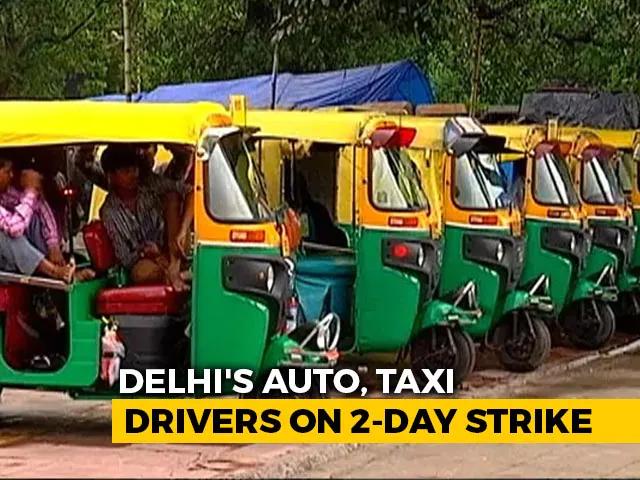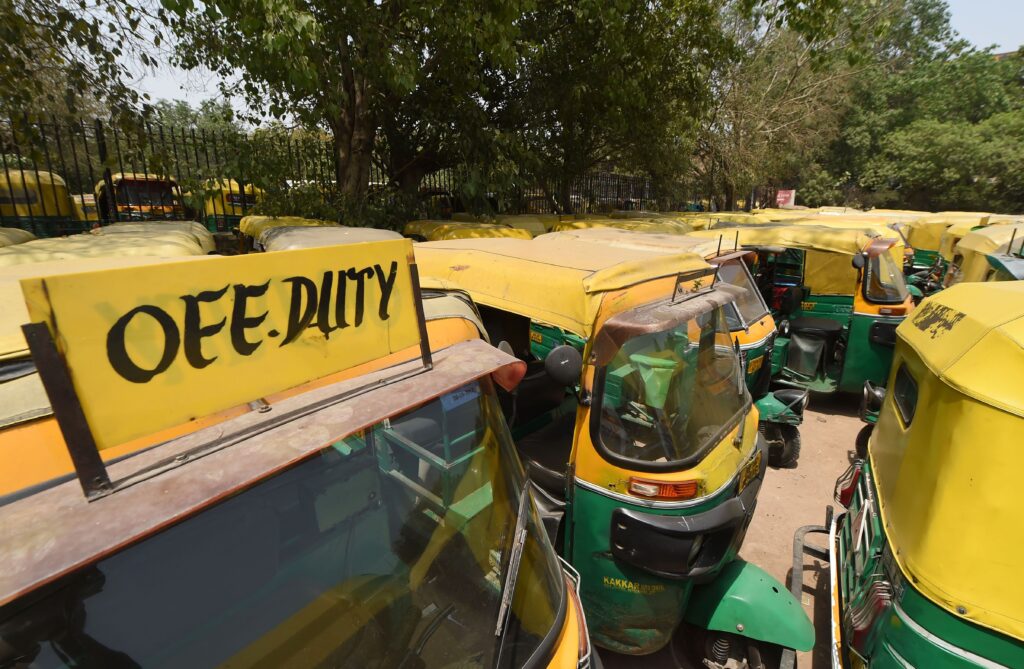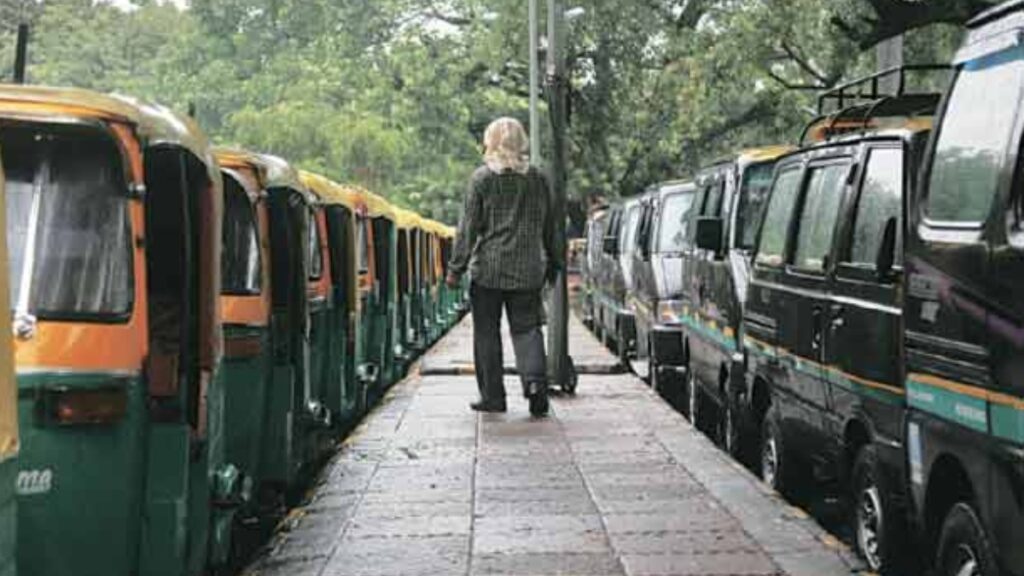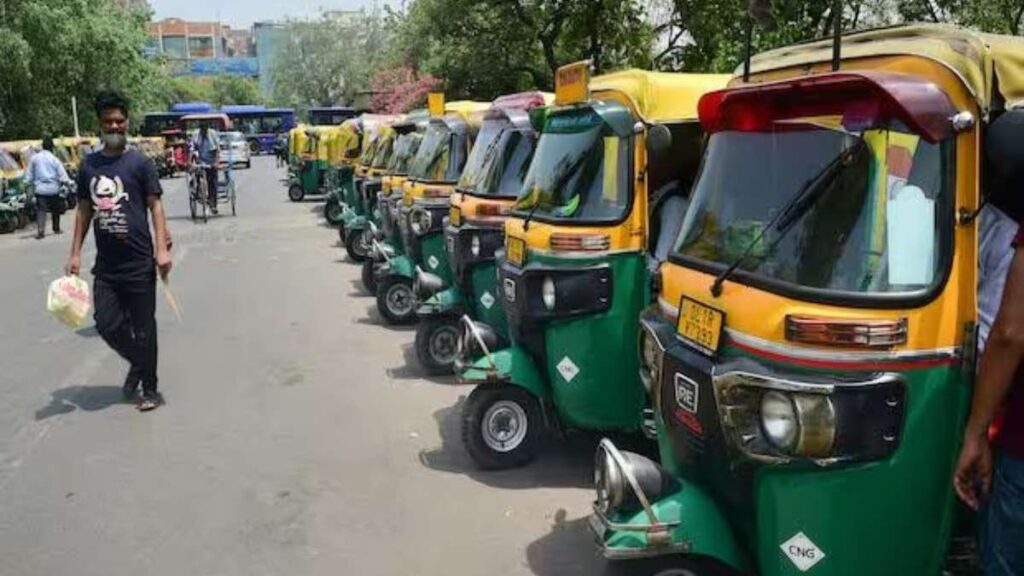
Delhi is bracing for a storm of transport chaos as auto and taxi drivers prepare to strike for two days, on August 22 and 23. With the bustling streets filled with commuters relying heavily on these services, the impact could be monumental. As frustrations rise among drivers over their demands, many are left wondering how this will affect their daily routines. In a city where every minute counts, the stakes couldn’t be higher. Buckle up as we delve into what led to this impending disruption and explore its implications for everyone who navigates Delhi’s busy roads.
The transport strike in Delhi

Delhi’s transport landscape is gearing up for a significant upheaval. Auto and taxi drivers have announced their intention to strike, creating an air of uncertainty for millions who depend on these services daily.
The planned two-day protest has caught the attention of commuters, businesses, and government officials alike. With roads that are typically bustling with activity set to see a major decrease in available vehicles, many are already planning alternative routes or modes of transportation.
As news spreads across social media platforms and local news outlets, the anticipation builds. Commuters express concern over delays and increased congestion for those left without access to reliable transport options. The atmosphere is charged with anxiety as everyone prepares for the potential fallout from this widespread disruption.
Reasons behind the strike and demands of auto and taxi drivers
The recent strike by auto and taxi drivers in Delhi stems from multiple grievances. Rising fuel prices have hit their earnings hard, prompting demands for higher fares to sustain their livelihoods.
Additionally, many drivers are frustrated with the increasing costs of vehicle maintenance and insurance. These expenses add pressure on an already strained income.
Another critical issue is the lack of government support during challenging times, particularly post-pandemic when ridership dropped significantly. Drivers seek better compensation packages and financial assistance to navigate these difficulties.
They are pushing for stricter regulations against app-based ride services that often undercut traditional fare rates. This disrupts their business model further and creates fierce competition without adequate oversight.
Impact on daily commuters and businesses

The upcoming two-day strike by auto and taxi drivers in Delhi is set to disrupt the daily routines of countless commuters. With many relying on these services for their morning commutes, the chaos will likely lead to longer wait times for public transport options.
Businesses too will feel the sting. Delivery services may slow down or come to a halt, affecting everything from food delivery apps to logistics companies. Customers might face delays receiving goods and services they depend on.
Public transportation systems like buses and metros could become overcrowded as people scramble for alternatives. This sudden influx of passengers can strain resources, potentially leading to increased frustration among travelers trying to reach their destinations.
For students heading to school or professionals getting to work, this strike could mean missed schedules and disrupted plans. The ripple effects will be felt across various sectors, highlighting just how critical auto and taxi drivers are in maintaining urban mobility.
Past instances of transport strikes in Delhi
Delhi has a history of transport strikes that disrupt daily life. In 2019, auto and taxi drivers protested against ride-hailing apps, claiming unfair competition and low earnings. The strike lasted for a day but created chaos across the city.
Another notable instance occurred in 2020 when the Delhi Transport Corporation (DTC) workers went on strike demanding better wages. This action left thousands stranded, highlighting the critical role public transportation plays in urban mobility.
In 2021, an unexpected protest by cab drivers over fuel prices led to significant delays at airports and railway stations. Commuters faced long waits as they sought alternative means to reach their destinations amid heightened frustration.
These past events underscore how deeply intertwined auto and taxi drivers are with the lifeblood of Delhi’s transport system. Each strike brings forth challenges that ripple through various sectors of society, revealing vulnerabilities in urban infrastructure.
Measures taken by the government to resolve the issue
The government of Delhi has been under pressure to address the ongoing transport strike. In recent days, officials have held emergency meetings with auto and taxi unions. The aim is to find common ground that satisfies both sides.
To ease tensions, they proposed a temporary fare adjustment. This could provide immediate relief for drivers struggling with rising fuel prices.
Additionally, officials are exploring regulatory changes to improve working conditions for auto and taxi drivers. Talks include discussions about insurance benefits and grievances regarding local traffic regulations.
Moreover, alternative transportation options are being considered by the authorities. They intend to deploy more buses during peak hours to accommodate commuters affected by the strike.
Public awareness campaigns have also been initiated. These efforts inform citizens about potential disruptions while encouraging them to seek alternate travel arrangements in advance.
Alternatives for transportation during the strike period
With the auto and taxi drivers striking, commuters need alternate options to navigate through Delhi. Public buses are a reliable choice. They cover extensive routes and can help you reach your destination without much hassle.
Ride-sharing apps might still operate, but availability could be limited. It’s wise to check for local carpooling groups too; they often have dedicated schedules during such strikes.
Cycling is another great option if you’re close enough to your workplace or school. Many areas in Delhi now support cycling lanes, making it safer for cyclists.
For those nearby, walking remains the simplest solution. It’s healthy and allows you to enjoy the city at a slower pace.
Consider arranging carpools with colleagues or friends who live in your area—sharing rides reduces congestion and can make travel more enjoyable amidst this chaos.
Conclusion and potential future implications

The ongoing strike by auto and taxi drivers in Delhi highlights a significant disruption to the daily lives of many. As the city braces for transport chaos over the next two days, it’s important to consider both immediate impacts and longer-term implications.
This strike could serve as a wake-up call for policymakers. The demands from drivers spotlight critical issues regarding wages, working conditions, and regulations that need addressing. If these concerns are not met, similar strikes might become more frequent.
For commuters who rely heavily on auto and taxi services, this is an opportunity to explore alternative transportation modes. From public buses to cycling options or carpooling initiatives, there are various ways to navigate around the city’s extensive traffic system.
As we observe how this situation unfolds over August 22-23, one thing is clear: the balance between driver livelihoods and commuter convenience remains precarious. It will be interesting to see if meaningful dialogue arises from this unrest or if more drastic measures will take place in response from both sides moving forward. Read more about this on Twitter.
Visit QAWire for more news.
